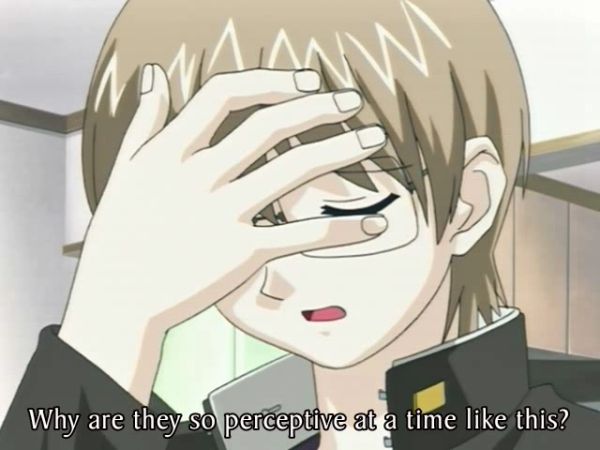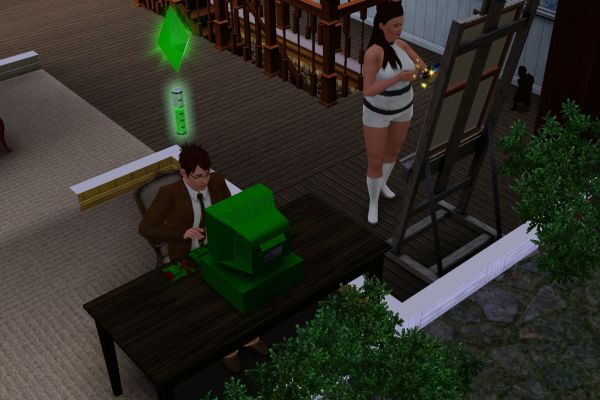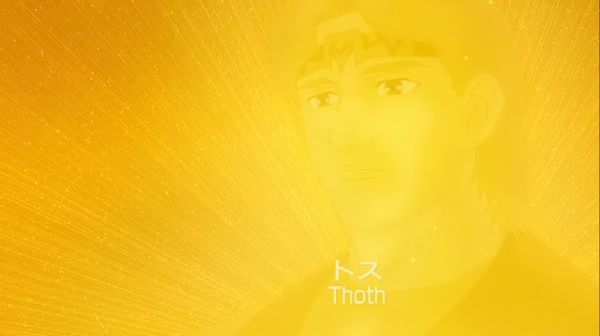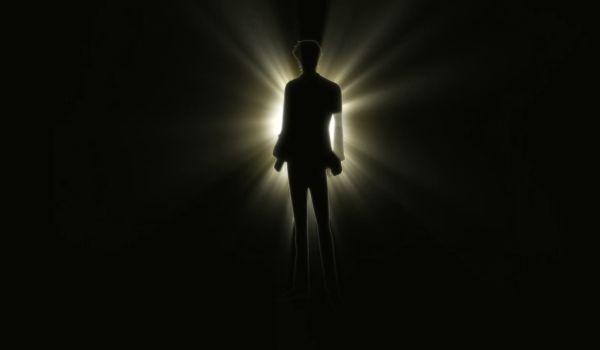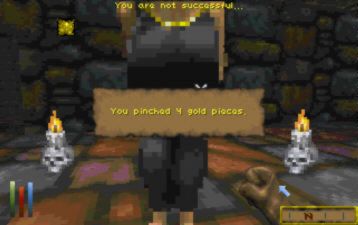
Little known fact: In the RPG Daggerfall, you got rewarded for sneaking up on people from behind. In this case the reward is minimal, but then again it’s not exactly a small target.
I’ve temporarily stopped writing on my second attempt at a NaNoWriMo novel. Temporarily, I say! At least I say that for now. It just isn’t as engaging as I’d like. Well, actually I like making all those parallel earths and tell how history unfolded differently on each of them. There are thousands and thousands of parallel earths in that story, although it looks like all of the novel will take place on it. Still, there are people from many others, and the Sixthers have smuggled in books from even others, so there is that.
On the other hand, there is no risk of sex, ever. I mean, ever and ever. The people who are restored to life are immune. They can hug and cuddle but they simply have no sex drive anymore. Also, they don’t die, at least not permanently. Now as my old literature teacher in high school told us, all true poetry is about love and death. And let me add, when the love is platonic and the death is temporary, it does affect the tension level in your writing. Yeah, verily.
Still, I expect to return and write more about the innumerable alternate histories. Someday.
***
In the meanwhile, I have started a story about a guy who is biking to town to buy Skyrim, the fifth Elder Scrolls game, on 11/11/11. (That’s when it comes out in real life! Wheeee!) On his way he crashes into a car and strikes his head. Perhaps fatally, perhaps not, the story so far is very vague in that regard. He begins to have a near-death experience, then suddenly he is sucked away and wakes up in a temple in Daggerfall. Except it all looks lifelike, instead of the low-resolution game graphics. And the sounds and smells are also completely realistic. Furthermore, several hundred years have passed in Tamriel, and magic has risen to a level where it is barely distinguishable from technology. A modern, magical world.
This is something I wrote about in my MoM2000 NaNovel, which erased itself and its backups (except a few hundred words) from my hard disk and made me lose NaNoWriMo that year. Good work! Anyway, that was based on the magical strategy game Master of Magic, and the functional tech level was up to year 2000, only with magic instead of technology.
The Younger Scrolls I: Aleena is based on the series of RPGs called The Elder Scrolls,  of which the first was called Arena. Daggerfall was the second and my all-time favorite, although it was particularly hard on my wrists and so I had to give it up. They are all hards on the wrist, but that one was exceptional. I blame it on having to hold down the right mouse button every time you perform a sword stroke (or warhammer or whatever).
In The Younger Scrolls, magic has become more of a commodity so society has a standard of living similar to Earth in the 20th century. I have not yet learned exactly what the differences are, there certainly are differences. Â It is not like every piece of technology in our world has an exact magical equivalent. On the other hand, they have summoning and teleportation – the ability to move people or objects from one place to another in the blink of an eye – although it requires rather a fair bit of magic power and skill.
The name Aleena refers to the name of the main character. The 18 year old boy is called Alvin, but when he wakes up in Tamriel he has the body of a 19 year old girl called Aleena. Â She is a Breton – a pale, fair-haired, pudgy race of humans with innate magical resistance and more talent for magic than most humans, although less than elves. They are the most common race in Daggerfall, and judging from my memories (and some screenshots) from the game, the women in Daggerfall had particularly well developed hips and backsides. I used to sneak up on them in the game but the game mechanics had no visuals for pinching them, only a text message. Well, I was younger back then. I believe I got the game in 1994.
Tamriel 500 years after Daggerfall has a higher standard of living and a larger population. Crime, then rampant, is greatly reduced. Farms have replaced much of the wilderness. Still, there is lots of adventure to be had. Racial tensions are high and many-sides (there are numerous humanoid races in Tamriel). And that’s just the civilized ones. Not all wild humanoid races have been fully assimilated. The nymphs have integrated quite well in society, while the centaurs are still rather hostile to outsiders and the goblins, harpies and spriggans are still a barbarian menace, although only on the fringes of civilization. Worse are the werecreatures and the various daedra (corporeal demons) summoned by mad mages alive, dead or undead. Still, as long as you stay clear of the really bad patches on the borders of civilization, New Daggerfall is probably safer than Florida. OK, that was faint praise, I guess.
Will the virgin Alvin have more luck as a lesbian? Will he / she become a famous hero now that he can no longer spend all his days playing The Elder Scrolls and eating chips? Who knows – I have just recently started. 3002 words today.  At this rate, the only way I can reach 50 000 is by writing a novel about some guy writing novels and getting bored after the first chapters so he starts on a new novel. ^_*





